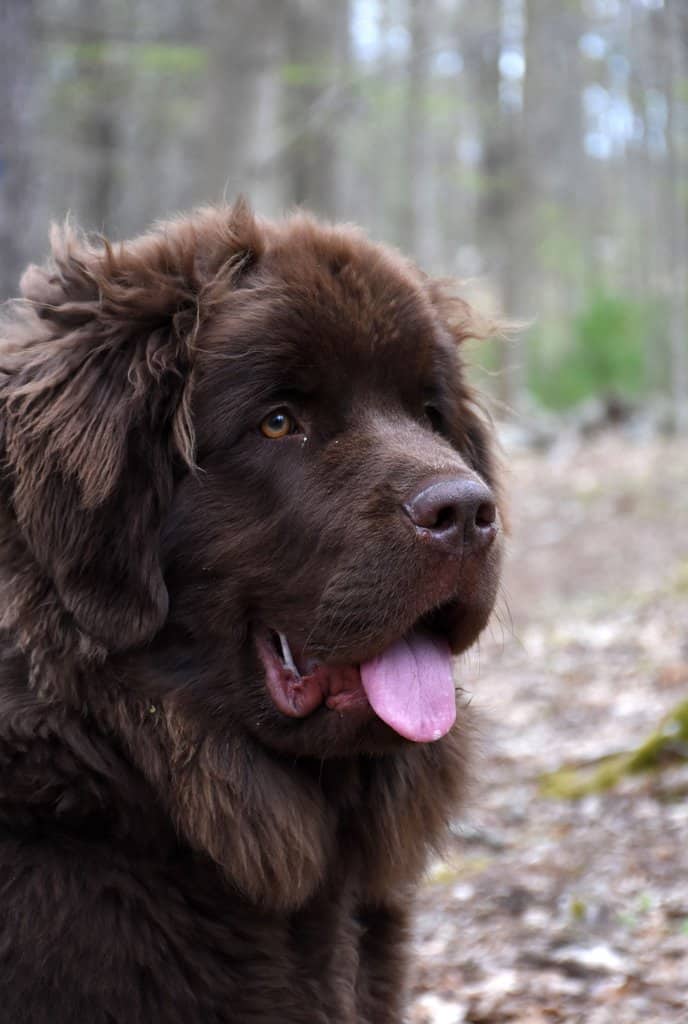Bernese Mountain Dogs are known for their beautiful tri-colored coats, but unfortunately, they are also prone to various skin problems. If you own a Bernese Mountain Dog, it’s important to keep an eye out for any signs of skin issues. These can range from minor irritations to serious infections that require immediate veterinary attention. In this blog post, we will discuss the most common symptoms of skin problems in Bernese Mountain Dogs, as well as some effective solutions to help alleviate these issues. By being aware of these potential skin problems and taking the necessary steps to address them, you can help keep your beloved Bernese Mountain Dog healthy and comfortable.
Bernese Mountain Dogs are large, beautiful and intelligent dogs that make great pets. However, like all dogs, Bernese Mountain Dogs can suffer from various skin problems. As a responsible pet owner, it is important to be able to recognize the symptoms of skin problems in your Bernese Mountain Dog, and more importantly, know how to treat them. In this blog post, we will discuss some of the most common skin problems that affect Bernese Mountain Dogs, their causes, and possible treatments.
Symptoms of Skin Problems in Bernese Mountain Dogs
1. Itchy Skin
Itchy skin is one of the most common symptoms of skin problems in Bernese Mountain Dogs. If you notice your dog constantly scratching, biting or licking its skin, it may be a sign that something is wrong. Itchy skin in Bernese Mountain Dogs can be caused by a variety of things, including fleas, ticks, allergies, and skin infections.
2. Redness and Inflammation
Redness and inflammation of the skin can also be a sign of a skin problem in your Bernese Mountain Dog. This is particularly common in areas with thin skin, such as the belly, armpits, and ears. Inflammation of the skin can be caused by allergies, infections, and other skin conditions.
3. Hair Loss
Hair loss is another symptom of skin problems in Bernese Mountain Dogs. If you notice patches of hair missing from your dog’s coat, it may be a sign of an underlying skin condition. Hair loss can be caused by allergies, infections, hormonal imbalances, and other skin conditions.
4. Scabs and Crusty Skin
Scabs and crusty skin can also be a sign of skin problems in Bernese Mountain Dogs. This is often caused by skin infections, which can be bacterial, fungal, or parasitic in nature. Scabs and crusty skin can also be caused by allergies, hot spots, and other skin conditions.
5. Odor
Unpleasant odor emanating from your Bernese Mountain Dog’s skin can also be a sign of skin problems. This is often caused by skin infections, which can cause a foul smell. Other skin conditions such as seborrhea can also cause an unpleasant odor.
 - Copy - Copy.png)
Possible Solutions for Skin Problems in Bernese Mountain Dogs
1. Regular Grooming
Regular grooming is very important in preventing skin problems in Bernese Mountain Dogs. This includes regular bathing, brushing, and trimming of the hair. This helps to remove dirt, debris, and dead skin cells from the coat, preventing the buildup of bacteria and other pathogens that can cause skin infections.
2. Proper Nutrition
Proper nutrition is also important in preventing skin problems in Bernese Mountain Dogs. Feeding your dog a high-quality diet that is rich in vitamins and minerals can help to promote healthy skin and a shiny coat. It is also important to ensure that your dog has access to clean water at all times.
3. Parasite Control
Parasite control is also important in preventing skin problems in Bernese Mountain Dogs. This includes regular use of flea and tick prevention medications, as well as regular deworming to prevent parasitic infections.
4. Allergy Management
Allergy management is important in preventing skin problems in Bernese Mountain Dogs. This includes identifying and avoiding allergens that trigger allergic reactions, such as certain foods, pollen, and dust. In severe cases, your veterinarian may prescribe allergy medications to help manage your dog’s symptoms.
5. Topical Treatments
Topical treatments can be used to treat a variety of skin problems in Bernese Mountain Dogs. These include medicated shampoos, creams, and ointments that are applied directly to the affected area. Your veterinarian can recommend the appropriate topical treatment for your dog’s specific skin problem.
Overall, skin problems in Bernese Mountain Dogs can be quite common, but with proper care and attention, they can be prevented and treated. As a responsible pet owner, it is important to be aware of the symptoms of skin problems in your Bernese Mountain Dog and take appropriate action to prevent and treat them. With proper care and attention, your Bernese Mountain Dog can live a healthy and happy life.
In conclusion, as a loving owner of a Bernese Mountain Dog, it is important to keep an eye out for any potential skin problems. By regularly monitoring your dog’s skin and being aware of the common symptoms, you can catch any issues early and seek proper treatment. Remember to consult with your veterinarian if you notice any concerning changes in your pup’s skin. By taking the necessary steps to care for your dog’s skin health, you can help ensure a happy and comfortable life for your furry companion.


%20-%20Copy%20-%20Copy.png)
%20-%20Copy%20-%20Copy.png)
%20-%20Copy.png)

%20-%20Copy.jpg)
.jpg)
